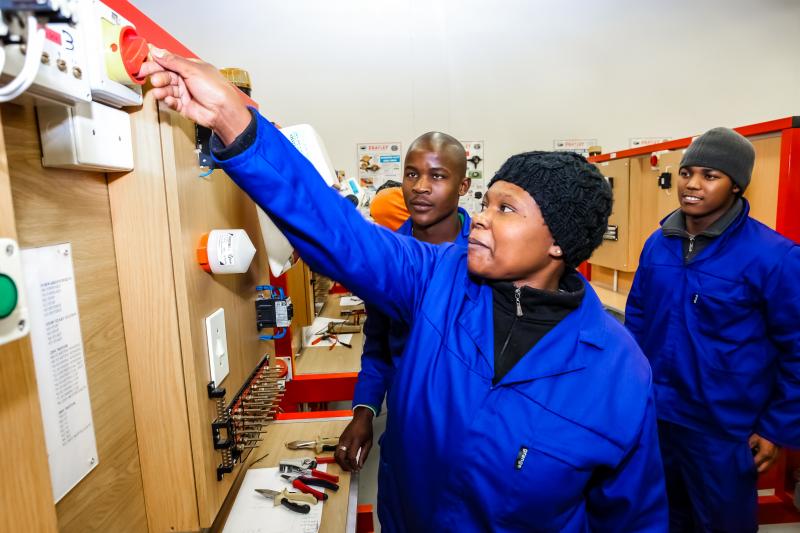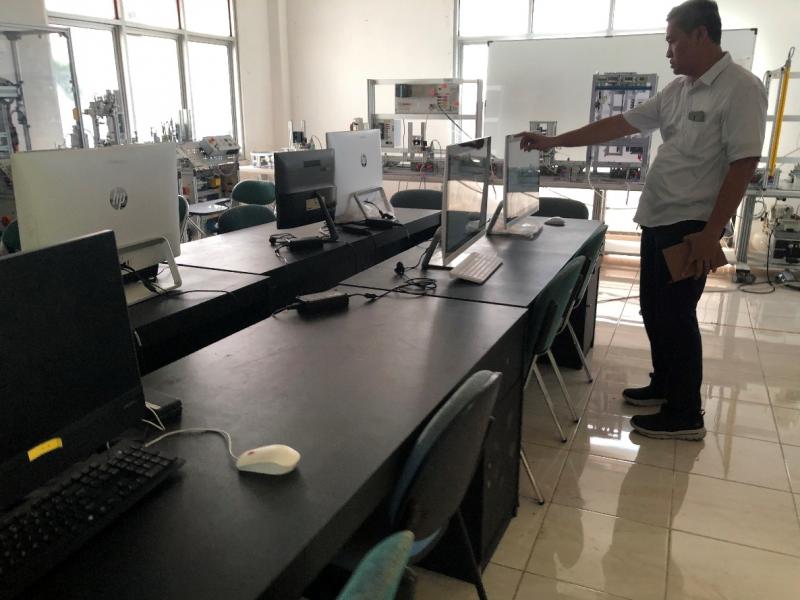Education
IsDB has been supporting its Member Countries (MCs) in the education sector in Sub-Saharan Africa, MENA and Asia. With over $4.91 billion in loans and grants to the education sector for more than 45 years, IsDB has a long track record in assisting its developing member countries (DMCs) achieve the goal of quality education for all.
The challenges in the education sector of IsDB MCs include the following six issues:
- First is an Access gap, with an estimated 29% (2017 UIS data) of out-of-school children in MCs.
- Second is a Quality gap, with millions of the children enrolled in school but not learning a situation that has been aptly characterized as the ‘learning crisis’.
- Third is a Financing gap which concerns both domestic and external resources required to achieve the SDG 4 particularly in the wake of COVID-19 pandemic.
- Fourth is a Workforce gap in terms of quantity and quality of teachers.
- Fifth, there is a Leadership/capacity gap for effective and efficient governance of the education systems at the country level including the political will to make necessary reforms towards improving learning outcomes.
- Finally, there is the Technology gap manifested through rapid changes in technology that could enhance learning but could potentially exacerbate inequalities.

These issues are compounded by demographic changes, climate change, infrastructure deficit and the transition to green economy within the global market. The impact of COVID-19 pandemic has further exposed the inability of current modes of delivery to withstand shocks and ensure learning continuity.
The overall goal of the IsDB Education Policy is to “support education systems to build resilience and institutional capacity, ensure continued learning for all and enhance learning outcomes. Hence, its theme is “Learning for Human Development”.
The operational strategy strives to create and facilitate an enabling environment for the provision of purposeful education that is human oriented, responsive to the knowledge, skills and dispositions of all learners.
IsDB provides financial and technical resources to its MCs for education to achieve following objectives:
- Building resilient and balanced education ecosystems for inclusive quality lifelong learning;
- Building foundation for human development & empowering learners to discover pathways to harnessing their potentials;
- Investing in youth skills & competency development;
- Fostering development and use of science and technology to enhance competitiveness
- Facilitate increased systemic changes for equitable and inclusive education services

The Islamic Solidarity Funds for Development (ISFD), dedicated to poverty reduction, support programs in education that include: Bilingual Education, Out-of-School Children Program in collaboration with Education Above All (EAA), and Vocational and Literacy Program for Poverty reduction (VOLIP) which includes a microfinancing for learners.
IsDB Education policy and strategy supports the use the Science, Technology and Innovation (STI) initiative to promote pivotal solutions by identifying and training potential innovators (change agents) in science and technology education. STI are influential drivers of economic growth and will undoubtedly continue to shape the world. All sectors of the economy are affected by constant innovations for improved efficiency. Research and Development (R&D) at tertiary and higher education continue to play a critical role in the advancement of science, technology and innovation. Global competitiveness will be determined, to a large extend, by the investments in STI with implications for skills and competency development of the workforce. Thus, there will be the need for continuous training and upgrading of the skills of learners and indeed the current workforce. The need for the education system to produce graduates who are creative and innovative has never been greater. MCs must upscale their innovative and creative capabilities if they are to effectively competent on the global scene.
Skills have always been a key issue for any stage of the industrial activities and the processing of products. Particularly acute is the issue of skills development, task-independent and task-based, – to keep pace with rapid globalization & technological advancements. The three cognitive skills - literacy, numeracy and problem solving - appear to be a general, industry- and task-independent set of skills that positively relate to labor productivity and to integration into GVCs in all industries. Therefore, the education system plays a key role in ensuring that learners are endowed with those cognitive skills early in life, which in turn may increase their productivity and greater forward integration of industries into global value chains (GVCs).